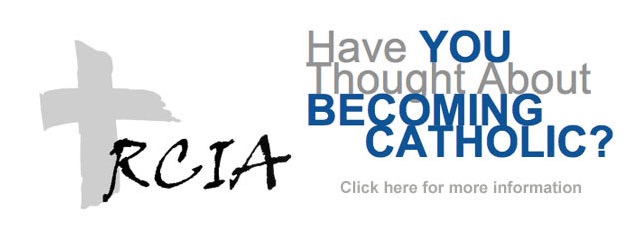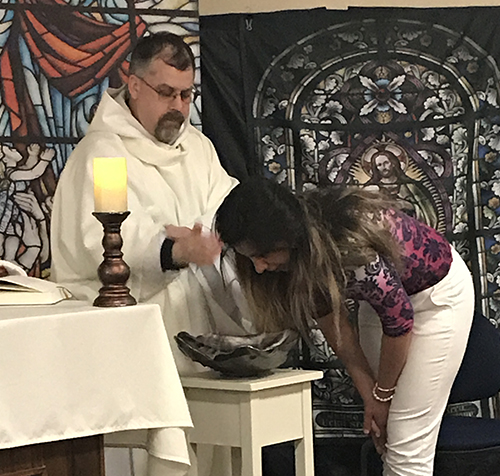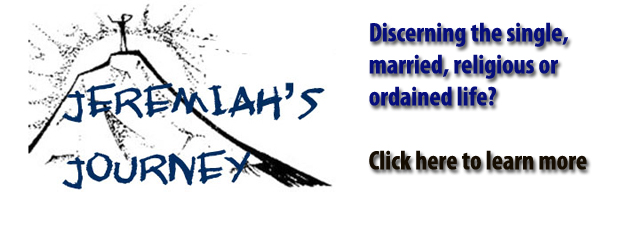SACRAMENTS
Through the Sacraments, God shares his holiness with us so that we, in turn, can make the world holier.
The visible reality we see in the Sacraments is their outward expression, the form they take, and the way in which they are administered and received. The invisible reality we cannot "see" is God's grace, his gracious initiative in redeeming us through the death and Resurrection of his Son. His initiative is called grace because it is the free and loving gift by which he offers people a share in his life, and shows us his favor and will for our salvation. Our response to the grace of God's initiative is itself a grace or gift from God by which we can imitate Christ in our daily lives.
“The Sacraments are a manifestation of the Father’s tenderness and love towards each of us”
- Pope Francis

BAPTISM
"You were buried with him in baptism, in which you were also raised with him through faith in the power of God, who raised him from the dead" (Col 2:12).
Jesus' immersion in the water is a sign for all human beings of the need to die to themselves to do God's will. Jesus did not need to be baptized because he was totally faithful to the will of his Father and free from sin. However, he wanted to show his solidarity with human beings in order to reconcile them to the Father.
By commanding his disciples to baptize all nations, he established the means by which people would die to sin—Original and actual—and begin to live a new life with God.

EUCHARIST
"I am the living bread that came down from heaven. Unless you eat the flesh of the Son of Man and drink his blood, you do not have life within you" (Jn 6:51, 53).
So rich is the mystery of the Eucharist that we have a number of terms to illumine its saving grace: the Breaking of the Bread; the Lord's Supper; the Eucharistic Assembly; the Memorial of Christ's Passion, Death, and Resurrection; the Holy Sacrifice of the Mass, the Holy and Divine Liturgy; the Eucharistic Liturgy; Holy Communion; and Holy Mass (cf. CCC, nos. 1328-1332).

RECONCILIATION
Penance is an experience of the gift of God's boundless mercy
The Sacrament of Penance is an experience of the gift of God's boundless mercy. Not only does it free us from our sins but it also challenges us to have the same kind of compassion and forgiveness for those who sin against us. We are liberated to be forgivers. We obtain new insight into the words of the Prayer of St. Francis: "It is in pardoning that we are pardoned."

CONFIRMATION
Be sealed with the gift of the Holy Spirit
Confirmation, together with Baptism and Eucharist, form the Sacraments of Initiation that are all intimately connected. In the Sacrament of Confirmation, the baptized person is "sealed with the gift of the Holy Spirit" and is strengthened for service to the Body of Christ.

MATRIMONY
The two of them become one body
The Sacrament of Marriage is a covenant, which is more than a contract. Covenant always expresses a relationship between persons. The marriage covenant refers to the relationship between the husband and wife, a permanent union of persons capable of knowing and loving each other and God. The celebration of marriage is also a liturgical act, appropriately held in a public liturgy at church. Catholics are urged to celebrate their marriage within the Eucharistic Liturgy.

HOLY ORDERS
Those who receive the sacrament of Holy Orders -- as a deacon, priest or bishop -- are consecrated in Christ's name "to feed the Church by the word and grace of God."

ANNOINTING OF THE SICK
The Rite of Anointing tells us there is no need to wait until a person is at the point of death to receive the Sacrament. A careful judgment about the serious nature of the illness is sufficient. The Sacrament may be repeated if the sick person recovers after the anointing but becomes ill once again, or if, during the same illness, the person's condition becomes more serious. A person should be anointed before surgery when a dangerous illness is the reason for the intervention (cf. Rite of Anointing, Introduction, nos. 8-10).
BECOMING CATHOLIC

For adults today, the Church, after the Second Vatican Council, has restored the order of the Catechumenate in the Rite of Christian Initiation of Adults (RCIA). It outlines the steps for the formation of catechumens, bringing their conversion to the faith to a greater maturity. It helps them respond more deeply to God's gracious initiative in their lives and prepares them for union with the Church community. This process is meant to form them into the fullness of the Christian life and to become disciples of Jesus, their teacher. This includes an initiation into the mystery of salvation, the practice of faith, hope, and love, and other virtues in a succession of liturgical rites.
Persons baptized into another Christian church and now seeking full communion with the Catholic Church are also welcomed to participate along with catechumens in the RCIA in the process of learning about the Catholic faith and being formed in that faith. They bring to the process of preparation their prior experience of Christian life and prayer. For a baptized Christian, reception into full communion with the Catholic Church involves reception of the Sacrament of Penance and Reconciliation and then a Profession of Faith followed by the celebration of Confirmation and the Eucharist.
Please complete the form below and will be be in touch with you.

For adults today, the Church, after the Second Vatican Council, has restored the order of the Catechumenate in the Rite of Christian Initiation of Adults (RCIA). It outlines the steps for the formation of catechumens, bringing their conversion to the faith to a greater maturity. It helps them respond more deeply to God's gracious initiative in their lives and prepares them for union with the Church community. This process is meant to form them into the fullness of the Christian life and to become disciples of Jesus, their teacher. This includes an initiation into the mystery of salvation, the practice of faith, hope, and love, and other virtues in a succession of liturgical rites.
Persons baptized into another Christian church and now seeking full communion with the Catholic Church are also welcomed to participate along with catechumens in the RCIA in the process of learning about the Catholic faith and being formed in that faith. They bring to the process of preparation their prior experience of Christian life and prayer. For a baptized Christian, reception into full communion with the Catholic Church involves reception of the Sacrament of Penance and Reconciliation and then a Profession of Faith followed by the celebration of Confirmation and the Eucharist
From The RCIA Transforming the Church (paragraph 1 from the General Introduction): In the sacraments of Christian initiation, we are freed from the power of darkness and joined to Christ's death, burial, and resurrection. We receive the spirit of filial adoption and are a part of the entire people of God in the celebration of the memorial of the Lord's death and resurrection.
Evangelization “is necessary for Christian initiation. Men and women hear the gospel proclaimed, by word and deed, and come to a particular Christian community as a result of this initial stirring in faith. The process whereby adults both hear and respond to this gospel in the Catholic community is called the Rite of Christian of Adults.” (The RCIA Transforming the Church, Thomas Morris)
Evangelization leads to conversion.
Conversion “is first of all a work of the grace of God who makes our hearts return to him.” (Catechism of the Catholic Church #1432) It is an on-going process that never ends. It involves various stages of change. Conversion is a turning from something coupled with a turning towards something else. Christian faith is conversion to Jesus Christ.
Periods of Formation And Liturgical Steps:
The rites celebrated throughout the process gives graces which aid in the person's process of conversion, understanding of church teaching, and the desire for the faith.
RCIA - Questions & Answers:
The United States Conference of Catholic Bishops has gathered together a great resource explaining the RCIA process. Click here

STEP ONE:
Precatechumenate: This is a time, of no fixed duration or structure, for inquiry and introduction to Gospel values, an opportunity for the beginning of faith and a time to recognize Jesus Christ’s personal invitation.
The first step (Rite of Acceptance and Rite of Welcoming for candidates): Reaching the point of initial conversion and wishing to become Christians, they are accepted as catechumens by the Church. In the Rite of Acceptance they are signed by the Cross.
STEP TWO:
Catechumenate:
This is the time for the nurturing and growth of the catechumen’s faith and conversion to God.
The second step (Rite of Election and Call to Continuing Conversion): Having progressed in faith and nearly completed the catechumenate, they are accepted into a more intense preparation for the sacraments. These rites are celebrated with the Bishop at the Cathedral during the first Sunday of Lent.
STEP THREE
Purification and Enlightment:
This is the time immediately preceding the elects’ initiation, usually the Lenten season preceding the celebration of this initiation at the Easter Vigil; it is a time of reflection, intensely centered on conversion, marked by the celebration of the scrutinies and presentations and of the preparation rites on Holy Saturday.
The third step (Sacraments of Baptism, Confirmation, and Eucharist): Having completed their spiritual preparation, they receive the sacraments of initiation.
Photo by Bruce McDaniel
STEP FOUR
Mystagogy:
This is the time, usually the Easter season, following the celebration of initiation, during which the newly initiated experience being fully a part of the Christian community by means of pertinent catechesis and particularly with all the faithful in the Sunday Eucharistic celebration.
VOCATIONS
WHAT’S YOUR CALLLING IN LIFE?
We are all called by God to a vocation in life. This calling is not to something that we won't be happy with, just the opposite, when we respond to God's call we are able to find the joy, peace and fulfillment that we all seek in life. I resisted the priesthood for a long time. It wasn't a popular "career choice", it involved commitments and sacrifices that do not seem relevant in today's world. God persisted, I gave in and cannot begin to describe the joy and happiness that I have found.
Most will be called to the married life, some as religious and some as priests. Wherever God calls us, the process we use to find out where we are meant to be is called discernment. Resources are posted to the right to assist you in the process of discernment.
If I can be of any assistance, please do not hesitate to contact me by completing the form below:
God bless!
Fr Bill
GET IN TOUCH WITH US
We are always happy to hear from you
CAMPUS ADDRESS
285 Old Westport Road
Dartmouth, MA 02747
Campus Center Room 202
NEWMAN HOUSE
359 Old Westport Road
Dartmouth, Ma 02747
EMAIL
Fr. Bill O'Donnell - bodonnell@umassd.edu
Dcn Frank Lucca - flucca@umassd.edu
PHONE
508-999-8872

